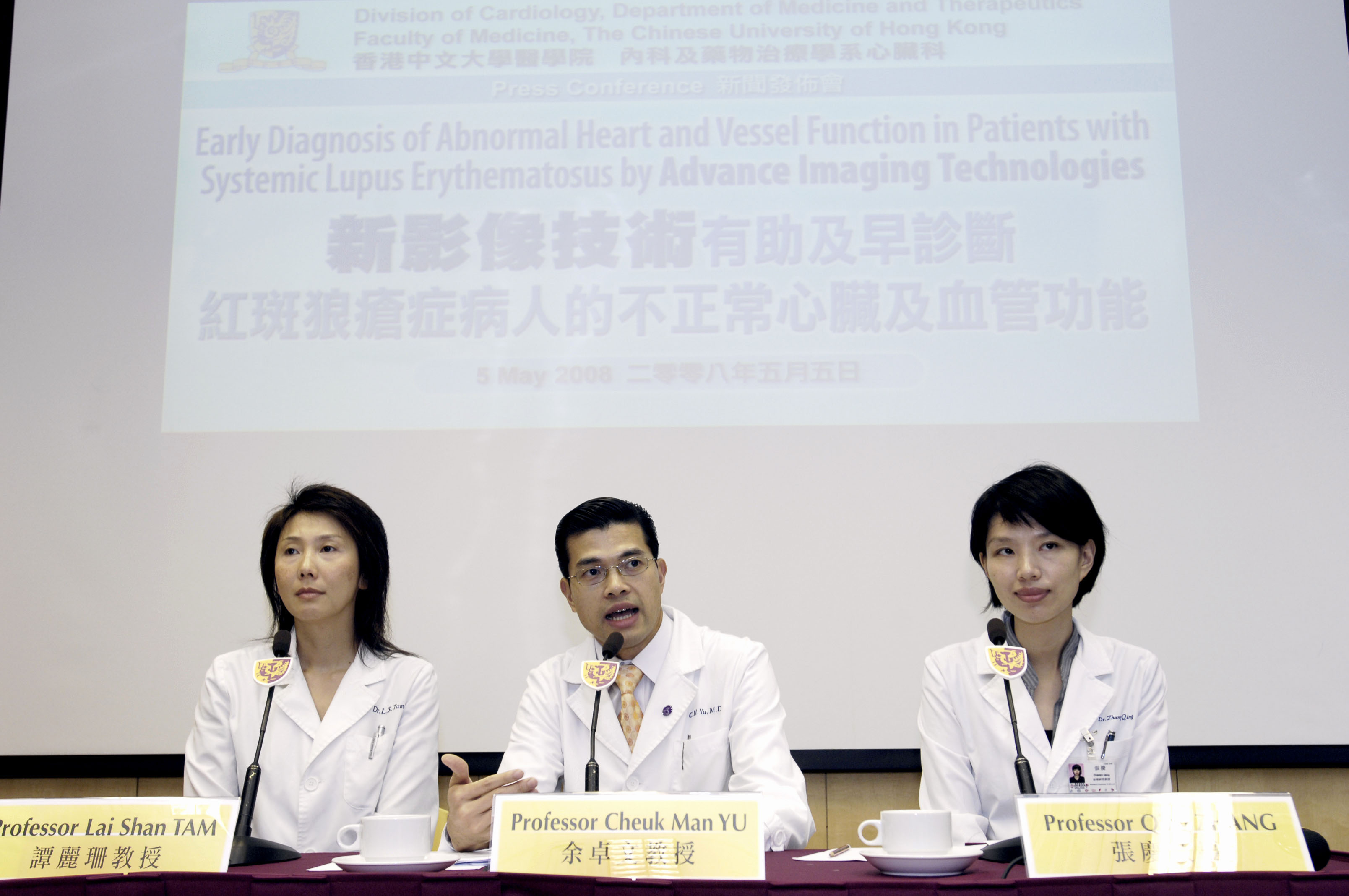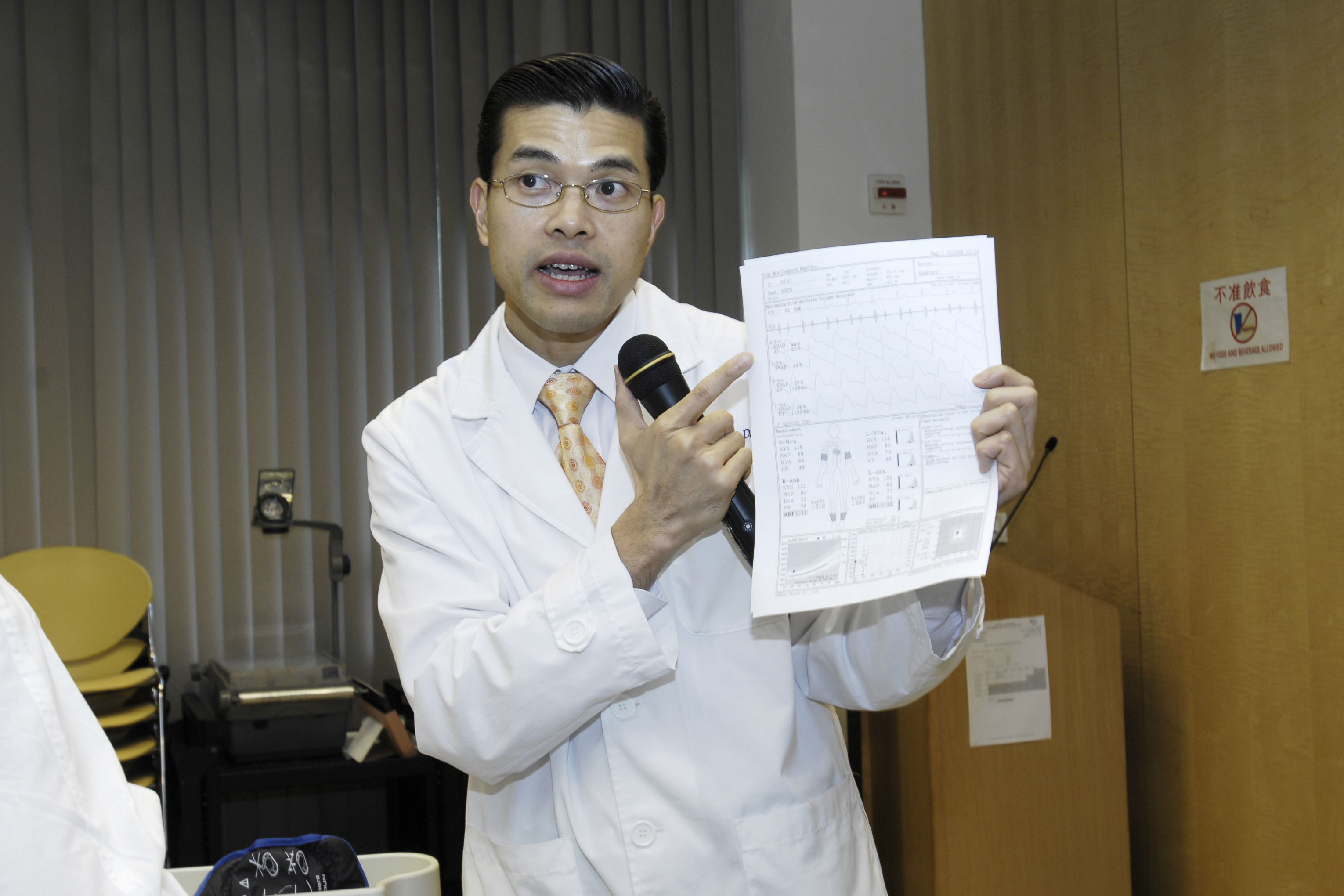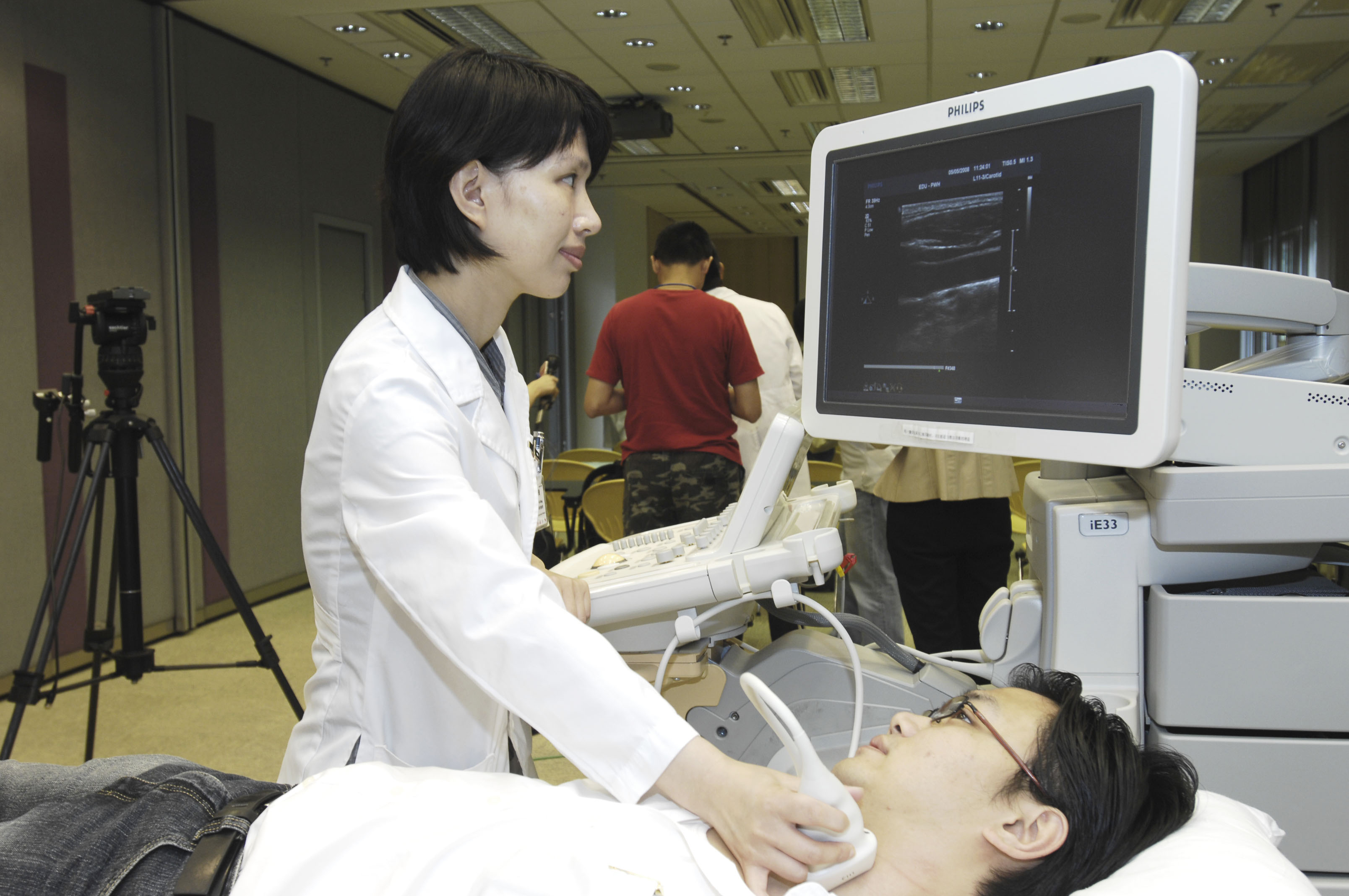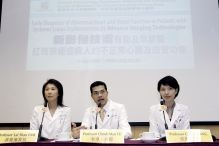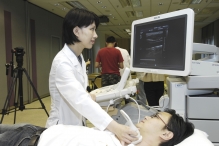CUHK
News Centre
Early Diagnosis of Abnormal Heart and Vessel Function in Patientswith Systemic Lupus Erythematosus by Advance Imaging Technologies
Systemic Lupus Erythematosus (SLE) is a chronic autoimmune inflammatory disease, affecting multiple organs and can be fatal. The precise cause of SLE is unknown. Cardiovascular disease is the second leading cause of death in SLE. The latest research from the Division of Cardiology and Division of Rheumatology, Department of Medicine and Therapeutics at The Chinese University of Hong Kong revealed that early detection of subclinical cardiovascular disease with demonstration of premature atherosclerosis and arterial stiffening of the carotid artery in the neck, and preclinical abnormal cardiac function were enhanced using advanced non-invasive vascular and cardiac diagnostic technologies, namely, vessel stiffness test, tissue Doppler echocardiography and carotid artery ultrasound. The findings implicate early initiation of aggressive therapy that might reduce clinical manifestations of cardiovascular disease and its related deaths.
The prevalence of SLE in Chinese living in Hong Kong is much higher than that of the Caucasian populations in the US and UK. About 90% of cases in Hong Kong are pre-menopausal females aged between 16 and 55. It can be debilitating and affects employment and fertility. SLE results in premature atherosclerosis, heart attack, and arterial stiffening. Pericardial disease is common, and clinically significant valvular disease due to SLE develops in a minority of patients. However, premature development of atherosclerosis has emerged as an important cause of morbidity and mortality in patients with SLE as effective treatments for other causes of early deaths, particularly infections and kidney diseases, have become available.
The current study was conducted from May 2005 to July 2007. It involved a cohort of 87 SLE female patients who underwent non-invasive assessment of their artery and heart function using cutting-edge imaging technologies with high definition and precision that measured artery thickness, stiffness, pulse-wave velocity, pulmonary pressure and heart function.
There are a number of key findings. Firstly, after conducting the vessel stiffness test, 66% of the cohort was found to have abnormal pulse-wave velocity due to increased vessel stiffness. Secondly, 25% of patients demonstrated an increase in thickness of the vessel lining (intima-media thickness) when undergoing the carotid artery ultrasound. These results indicated premature development of atherosclerosis, and predispose patients to overt cardiovascular and neurovascular complications, such as coronary heart disease and stroke. Furthermore, arterial stiffening is related to disease activity in SLE. Results of the study have been accepted for publication in the international medical journal Lupus.
Another important finding of this research was that 65% of patients had evidence of subclinical impairment of heart function by tissue Doppler echocardiography, with abnormal contractile function in 25%, abnormal relaxation in 11% and abnormalities in both functions in 29%. Features of SLE associated with the presence of subclinical cardiac dysfunction include long disease duration of over 10 years, higher disease activity, multi-organ involvement and pulmonary arterial hypertension.
Professor Cheuk-Man Yu, Head of Division of Cardiology, Department of Medicine and Therapeutics, recommends that SLE patients should undergo regular vessel stiffness test and carotid artery ultrasound for assessing vascular stiffness and premature atherosclerosis, and tissue Doppler echocardiography for cardiac dysfunction, in order to adopt early treatment that may be beneficial in ameliorating vascular and myocardial diseases.
From left: Professor Lai-Shan Tam, Associate Professor, Division of Rheumatology, Department of Medicine and Therapeutics, CUHK Professor Cheuk-Man Yu, Head of Division of Cardiology, Department of Medicine and Therapeutics, CUHK Professor Qing Zhang, Research Assistant Professor, Division of Cardiology, Department of Medicine and Therapeutics, CUHK


